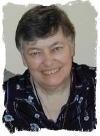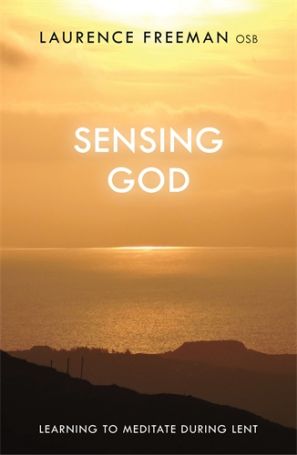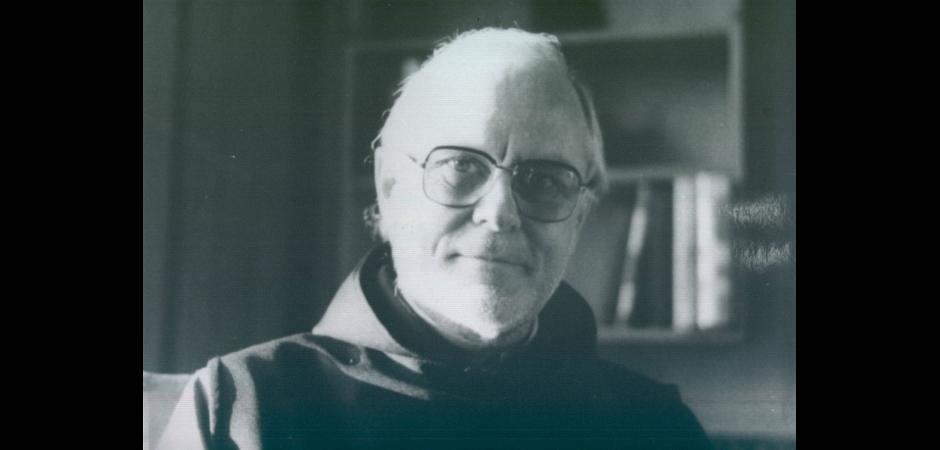
Some time ago (December 2003), I wrote a short Reflection for our Oblates on ‘Reconciliation in the Rule of Benedict’. However, in the light of various events since then it seems to me that this topic is by no means exhausted, so it might be worthwhile to look at it again. The whole question of forgiveness is one that we constantly need to reflect on as we walk the spiritual path.
Where can we look for encouragement and guidance? Let us begin with Scripture: Isaiah assures us of God’s unlimited forgiveness: I have swept away your transgressions like a cloud, and your sins like mist; return to me, for I have redeemed you.
(Isaiah 44:22) Similarly the Psalmist declares: As far as the east is from the west, so far God removes our transgressions from us. (Ps. 103) Jesus insists that we forgive, not seven times, but seventy seven times; (Matt. 18:22) in other words, an unlimited number of times. Christ himself forgave those who condemned him: Forgive them Father, for they do not know what they are doing. (Luke 23:34).

Some time ago (December 2003), I wrote a short Reflection for our Oblates on ‘Reconciliation in the Rule of Benedict’. However, in the light of various events since then it seems to me that this topic is by no means exhausted, so it might be worthwhile to look at it again. The whole question of forgiveness is one that we constantly need to reflect on as we walk the spiritual path.
Where can we look for encouragement and guidance? Let us begin with Scripture: Isaiah assures us of God’s unlimited forgiveness: I have swept away your transgressions like a cloud, and your sins like mist; return to me, for I have redeemed you.
(Isaiah 44:22) Similarly the Psalmist declares: As far as the east is from the west, so far God removes our transgressions from us. (Ps. 103) Jesus insists that we forgive, not seven times, but seventy seven times; (Matt. 18:22) in other words, an unlimited number of times. Christ himself forgave those who condemned him: Forgive them Father, for they do not know what they are doing. (Luke 23:34).
Benedict frequently reminds us of the importance of forgiving one another: Harbour neither hatred nor jealousy of anyone…pray for your enemies out of love for Christ…Make peace with an adversary before the setting of the sun. (R.B. 4). In the 14th century we find Julian of Norwich speaking of God’s forgiveness: I am glad that you have come to me, in all your trouble I have been with you…..So sins are forgiven through merciful grace, and our soul is honourably and joyfully received. (Revelations of Divine Love, Ch. 40)
But what have contemporary writers got to say to us on this important topic? Laurence Freeman recognises that forgiveness, accompanied by prayer, is essential to the christian life: Deep prayer allows us to forgive…..Forgiveness is the most revolutionary and transforming power of which we are capable. (Aspects of Love: ‘On Retreat with Laurence Freeman’ p. 72-74) He explains that it is through those times of silent meditation, that we gradually come to experience the healing power of Jesus working within us, that will enable us to forgive our enemies.
In my previous reflection on reconciliation two years ago, I quoted from the writings of Brother Roger Schultz, founder of the Taize community in Burgundy, France. In 1940, God inspired him to begin an ecumenical monastic community whose particular charism was to pray and work for unity and reconciliation, not only among christians, but at all levels of society, and among all people. In order to accomplish what was seemingly impossible, they focussed on the Word of God, in their prayer and in their daily lives; introducing a simple Scripture based liturgy, interspersed with silence, that has drawn thousands, especially youth, to gather and share with the monastic community at Taize.
Among the many pilgrims who visited Taize was Pope John Paul II, in October 1986, who called it That Little Springtime (No Greater Love: p.72) All his life, Brother Roger taught the Christian message of forgiveness. But in the end, this frail 90 year old man lived it to the full, when on August 16th he was stabbed to death by a mentally ill person in front of thousands of worshippers during an evening prayer service. His life, and especially the manner of his death, are a profound lesson for us all.
What does all of this say to us? We live in a world of violence, war, and threat of terrorism; still struggling with all the repercussions from 911. Even within our churches and our own families and communities, relationships break down, and at times seem to be irreconcilable. Yet forgiveness is something we must never withhold. As disciples of Christ we are obliged to work tirelessly towards healing, and reconciliation at all levels. Through our meditation, wonderful things can be accomplished, even though we are unaware of it. How does that happen? Only through the mysterious power and grace of God. We can let go of obstacles to unity, and open our hearts to our sisters and brothers everywhere.
With love to each one.
Hilda OSB



